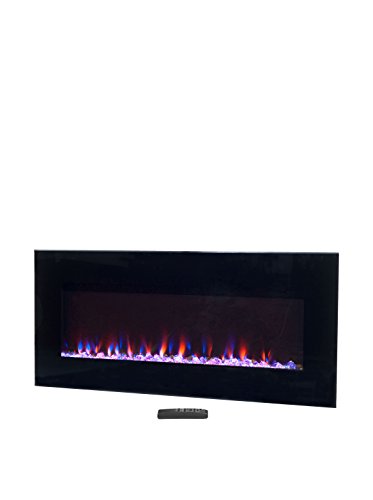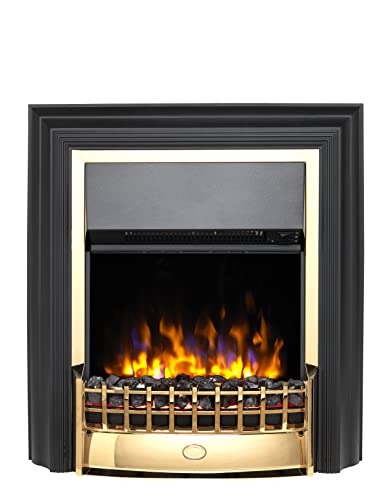The 10 Scariest Things About Fireplace Surround
페이지 정보

본문
 Choosing a Fireplace Surround
Choosing a Fireplace SurroundWhether you use a fireplace for aesthetics or warmth, choosing the perfect surround can give your living room personality. However, choosing the right fireplace surround that is compliant with the requirements of code and is safe could be a daunting task.
These custom-built surrounds are made from non-combustible material that adheres to the National Fire Code. They can look great in any style of home.
Simple Concrete Surround with Marble Slabs
A fireplace electric surround can be a focal point within an area and it can add warmth and charm. It is made of many different materials and crafted to match a variety of design styles. When choosing a fireplace style it is important to take into consideration the style and the budget of the space.
Marble fireplace surrounds are an elegant option that can be paired with a broad variety of styles. They can be combined with rustic woods or modern metals to create a unique, contemporary style. Marble is easy to maintain, and can withstand extreme temperatures making it an ideal option for a surround.
Stone is an elegant ethanol fireplace surround material that has a timeless look and is suitable for many homes. It can be carved and polished to give it a more modern appearance or left unfinished for a more traditional appearance. Stacked stone veneers are another popular option to give depth and texture to a room.
Granite is a popular choice for modern fireplace surrounds since it is durable and able to heat extremely well. It also comes in a variety of patterns and colors, so it can be used to create various styles of design. Quartzite can be formed and shaped to match a modern surround.
If you're a handyman, the installation of a concrete fireplace surround might be within your capabilities. Although it might seem like a daunting task, this project can actually be much easier than you imagine if you plan ahead and consult with a professional make sure the structure is sturdy enough.
A professional is also recommended when building a marble fireplace surround, as it requires special attention to avoid damage. A skilled carpenter can help you avoid mistakes that could cost you thousands of dollars in repairs.
If you're going to use tiles for your fireplace surround, be sure it's approved for high-temperature use. You'll typically find this information on the package or inquire with an employee at a local home improvement store.
Leaning Frame Surround
The fireplace surround is an essential design element that can change the entire room. It's not only meant to be aesthetically pleasing but also serves a practical function, which is to protect the wall behind the fireplace from fire damage and also to help reflect heat back into the room. It comes in a variety materials and is customizable to fit any style or design.
The right material to use for an inclined frame surround is crucial to create an intentional aesthetic. Concrete is a great choice because it's durable, non-flammable, and has a lot of visual appeal due to its natural texture and color. It is usually poured in a mold to allow you to choose the option of creating unique shapes.
When you design your leaning frame, make sure to add layers. This will make the frame appear curated and intentional rather than being thrown randomly on the wall or shelf. If you plan to display heavy items such as lamps or vases on frames that lean, put a piece of lining for drawers made of rubber beneath the base. This will stop them from sliding or damaging surfaces.
You could consider adding a wooden piece to the bottom of a concrete or marble surround. This will help to keep it in place. It will also help to reduce the weight of the item and prevent it from shifting while you enjoy a good glass of wine or coffee on your mantel.
After you have chosen the material, it is time to construct the piece. Mark the wall using the dimensions of your frame. Then using a saw cut cleats at each line. Ensure that the top cleat is at least 1 foot shorter than the shelf.
Then, you can screw the brackets to the wall. Make sure that the bolts are inserted through the backer board, and into a stud. If necessary, pre-drill the screw holes. After that, fix the mantel to the backer board. Fix the mantel using lag bolts (2-4 bolts per stud). Make sure that the bolts are long and sturdy enough to cover the entire thickness of the backerboard and 2/3 of the mantel's thickness.
Black Firebox Surround
Fireplace surrounds serve both an aesthetic and a functional function. They protect walls from damage from heat and reflect heat into the room and can make a fireplace an eye-catching feature in the space. Wood and metal are the most popular materials used for fireplace surrounds. Metal surrounds may be required by building codes to protect nearby combustible surfaces or they can simply enhance the aesthetic of a fireplace, making it appear more complete.
The fireplace in this contemporary living area has the black firebox surround, with white marble accents. The stone is a premium material that requires more care than a wooden mantel, but it adds a dramatic and striking design element to the space. The black finish also brings together the dark tones of the fireplaces wood flooring and furniture for an overall design.
While you may think of concrete as a material for sidewalks and driveways, it's an extremely versatile and attractive material for fireplace surrounds. It can be cut into custom shapes and poured into place, providing almost endless design options. This concrete surround was shaped to a curved profile. It has a sleek and modern look that contrasts the darker shades of the brick wall and wood floor.
Another popular material for fireplace surrounds is wood, which comes in a wide range of textures and colors to match any style. Wooden surrounds are less heavy and more affordable than brick surrounds and can be finished to match the color of your existing hearth pad. Most wooden surrounds are designed to accommodate household decorations above the mantel, fireplaces shop such as lamps and vases.
Some wood surrounds come with an ornamental faceplate that covers the top of the mantel and houses the doors to the fireplace. The faceplate can be secured with decorative hinges or fasteners that mimic the look of the look of wrought iron.
It is crucial to take into account the height of your fireplace when selecting a wood mantel. Building codes specify minimum clearance distances to stop the spread of a fire into the home. The distance will differ based on the type of fireplace insert, and may also vary from the country to the country or state to state.
Simple Wood Surround
If you want your fireplace to have a traditional wood look, there are different types of surrounds available for purchase. Some surrounds are made of solid oak, while others use various materials like stone legs, paired with mantels made of oak or pine. You can also select pine or oak fire surrounds that are designed to be a low-cost and easy choice.
A lot of people opt to buy a pre-made wooden fireplace surround because it is an affordable way to achieve the style they desire without having to pay for the services of a carpenter. Some pre-made pine surrounds come in a variety finishes and colors, allowing you to match them to your existing decor.
Another popular kind of fire surround made of wood is one that is made by hand using a top quality oak. It can be stained with a light oak color or left untreated to ensure that the natural golden brown of the wood can be seen. The fireplace surround can be used with either gas or wood fires. It comes in two different styles: arched or flat.
For those of you who have more experience in DIY home improvement projects, there are a lot of tutorials online that can assist you in creating your own wooden fire surround. One example is this complete step-by-step guide by H2O Bungalow that teaches you how to create an authentic wood surround from pine.
The tutorial explains how to build the horizontal component of the fireplace surround first. Then, you will learn how to construct the columns or pilasters vertically that support the mantel. After these are built then you can build the mantel. Then, the guide will show you how to install the crown molding that will be used to fill in any gaps between the cladding and the wall.
It is essential to adhere to the local fire code when you install a wooden surround around the fireplace. It is recommended to keep the surround at least 6 inches away from the edge of the opening. Use a non-flammable glue join the decorative molding to the surround, and ensure that it is held in the proper position.

- 이전글8 Tips For Boosting Your Best Freezer Brands Game 25.01.06
- 다음글Why All The Fuss Over Wall Mount Electric Fireplace? 25.01.06
댓글목록
등록된 댓글이 없습니다.



